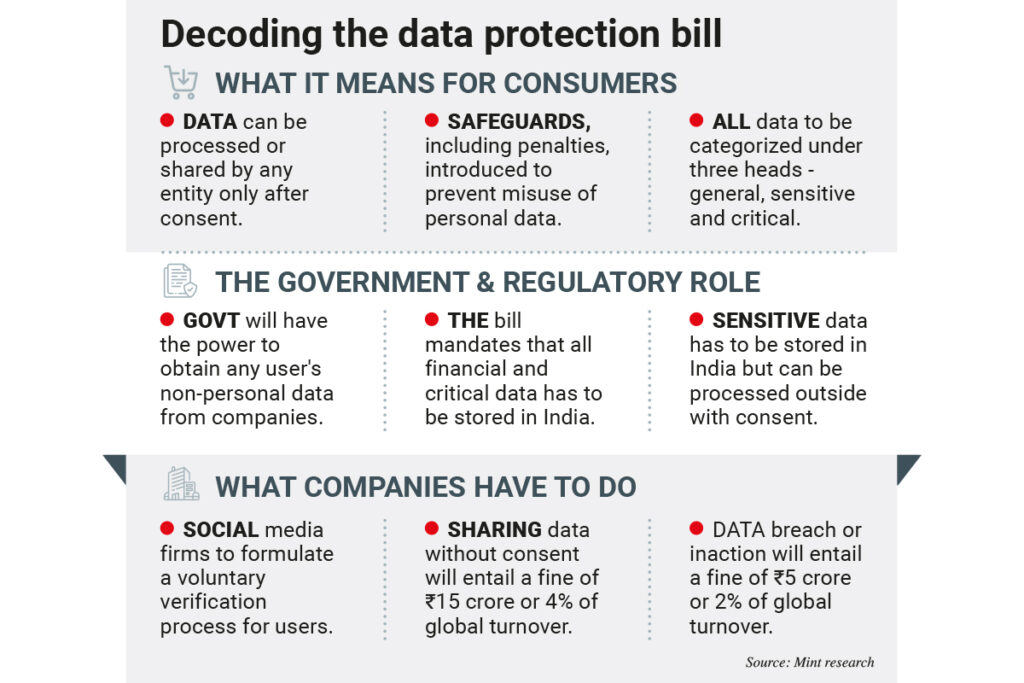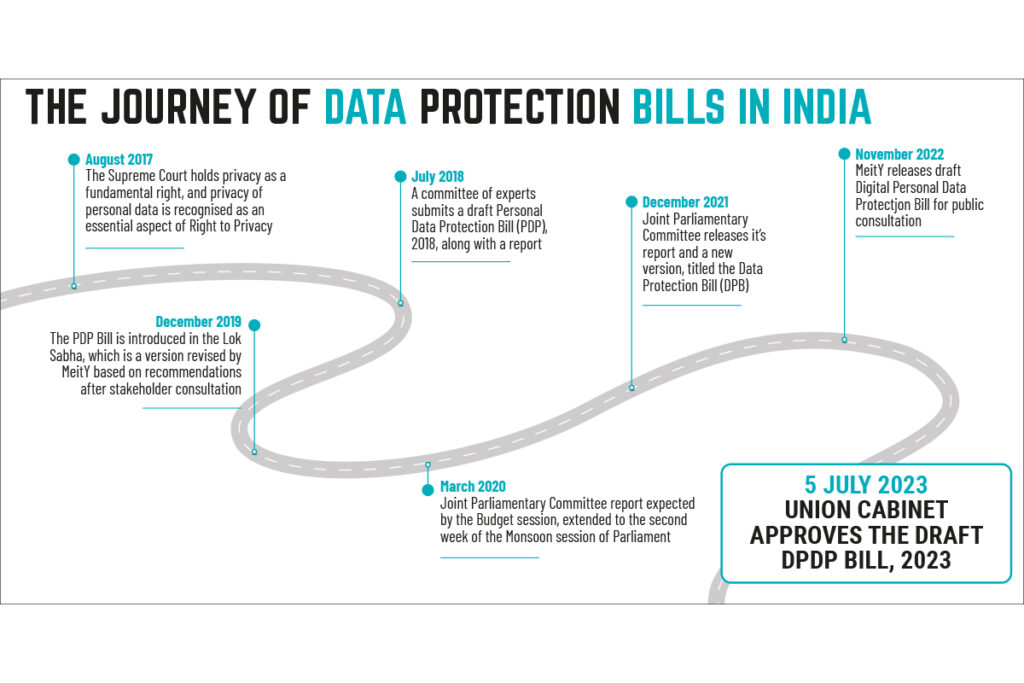Words by Karan Karayi
The recently passed data protection law will dictate how user data is handled, amid criticism over the scope of exemptions and the fear of Big Brother keeping a watchful eye. As an increasing number of Indians embrace all things digital, the nation finds itself at a crossroads, grappling with the prickly question of personal data protection. Even as the Lok Sabha passed the Digital Personal Data Protection Bill, concerns abound about the potential trade-offs between privacy and progress.
What is The Digital Personal Data Protection Bill, 2023?
The Digital Personal Data Protection Bill 2023 aims to establish a comprehensive framework for safeguarding individuals’ personal data in the digital realm. It seeks to provide individuals with greater control over their personal information while enabling the responsible use of data for innovation and economic growth.

Controversial Exemptions
One of the major criticisms levelled against the bill is the exemptions it grants to state authorities and the weakened nature of governmental accountability thereof. This has been a consistent concern across various versions of India’s data protection bills. Critics argue that these exemptions undermine the bill’s core purpose of protecting individuals’ personal data and erodes the “Right to Privacy”, which has been recognised by the Supreme Court as a fundamental right.

Exactly a year after the withdrawal of the Data Protection Bill, 2021, the government introduced the Digital Personal Data Protection Bill, 2023. This move indicates the government’s determination to pass a data protection law during the ongoing Monsoon session of the Parliament, which it did so in August, with key elements largely intact.
The Need for Data Protection Legislation
The rapid digitisation of India has necessitated the formulation of robust data protection legislation. With the proliferation of digital services and the collection of vast amounts of personal data, there is an urgent need to establish legal safeguards to protect individuals’ privacy and prevent misuse of their information.
Implications of the Digital Personal Data Protection Bill
The bill aims to empower individuals by granting them greater control over their personal data. It introduces provisions for obtaining explicit consent, data minimisation, and purpose limitation, ensuring that individuals have a say in how their information is collected, processed, and shared.
Oversight and Accountability
The bill proposes the establishment of a Data Protection Authority (DPA) to oversee the implementation and enforcement of data protection regulations. The DPA will play a crucial role in ensuring compliance, investigating violations, and imposing penalties on entities that fail to adhere to data protection standards.
Cross-Border Data Transfers
A significant aspect of the bill is the regulation of cross-border data transfers. It introduces provisions that require critical personal data to be stored and processed within the borders of India. This measure aims to safeguard sensitive personal information from unauthorised access and potential misuse by foreign entities.
Critiques and Concerns
State Authority Exemptions
One of the primary concerns surrounding the bill is the exemptions it grants to state authorities and instrumentalities. Critics argue that these exemptions create a power imbalance and undermine the principles of data protection. They fear that state entities may exploit these exemptions to infringe upon individuals’ privacy rights. After all, there must be someone to police the police.
Impact on Innovation and Economy
Some skeptics argue that stringent data protection regulations may hinder innovation and economic growth. They contend that excessive restrictions and compliance requirements could burden businesses, especially startups, and limit their ability to leverage data for technological advancements and market competitiveness.
Need for Strong Enforcement
While the bill outlines comprehensive data protection measures, its effectiveness ultimately relies on robust enforcement. Critics emphasise the importance of establishing a strong enforcement mechanism to ensure that entities comply with the regulations and face appropriate consequences for violations.
In Summary
As India navigates the complexities of the digital age, the Digital Personal Data Protection Bill, 2023 holds the promise of safeguarding individuals’ personal data while enabling innovation and economic growth. However, concerns persist regarding the exemptions granted to state authorities and the potential impact on innovation. Striking the right balance between privacy and progress remains a crucial challenge as India endeavours to protect its citizens’ personal data in the digital realm. Only time will reveal whether the bill represents a Faustian bargain or a significant step towards a more secure and privacy-conscious future.


